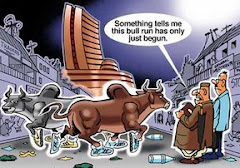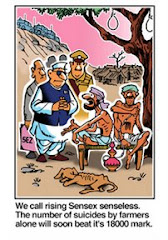The US Congress on Friday, February 13, approved a 787-billion-dollar package of tax cuts and fresh spending to salvage the broken US economy, handing President Barack Obama his biggest yet political victory.
The Senate voted 60-38 to pass the measure hours after it cleared the House of Representatives by a lopsided 246-183 margin, setting the stage for Obama to sign the measure into law before his self-imposed February 16 deadline.
Democratic Senator Sherrod Brown raced from his late mother's memorial service in his home state of Ohio to cast the decisive vote at 10:46 pm (0346 GMT Saturday, February 14), some three hours and 39 minutes after the previous lawmaker.
The president's Democratic allies carried the day with no Republican support in the House and just three Republican moderates in the Senate despite his repeated appeals for bipartisanship since taking office January 20.
With cancer-stricken Democratic icon Ted Kennedy out ill, the defections were just enough to reach the 60 votes needed to ensure Senate passage of what Obama has called "only the beginning" of work to rescue the broken US economy.
There was no immediate response from the White House, but Obama had made his delight known after the House vote, giving reporters a thumbs-up sign as he left the White House bound for his hometown of Chicago.
The new president had set a February 16 target date for the package — a blend of tax cuts, aid to hard-hit Americans, and investment in infrastructure, education and energy that he says will save or create 3.5 million jobs.
But the victory was bittersweet, as lawmakers were voting on a compromise stimulus plan that was smaller than Obama had requested, and most Republicans rebuffed his appeals to join Democrats in approving the bill.
"This isn't Monopoly money. It's real. It adds up, and it has to be paid back, by our children and by their children," said Republican Senate Minority Leader Mitch McConnell.
Obama told business leaders in a speech at the White House early in the day that finishing the legislation was critical but warning that much remained to be done to bolster the US economy.
"Passing this plan is a critical step, but as important as it is, it's only the beginning of what I think all of you understand is going to be a long and difficult process of turning our economy around," Obama said.
The president vowed more action to thaw frozen lending and repair the battered housing sector, saying quick, thorough action was needed "to truly address this crisis" — a paralyzing recession that has cost millions of jobs.
"Today, with final passage of this bill, we start putting Americans back to work," House Democratic Majority Leader Steny Hoyer said.
Republicans blasted the plan as bloated with wasteful government spending and lacking in tax cuts — the party's traditional cure-all for economic woes — and bemoaned the borrowed money to finance it.
"This bill is loaded with wasteful deficit spending on the majority's favorite government programs. We need jobs, not mountains of debt to be paid by our children," said the number two House Republican, Eric Cantor.
The legislation, a product of hard-fought negotiations this week, allocates 120 billion dollars to infrastructure spending, including monies for highways, trains and expanding broadband Internet access.
It also features nearly 20 billion dollars for renewable energy and 11 billion to modernize the US electrical grid — steps former vice president Al Gore warmly endorsed weeks ago as a major downpayment on Obama's strategy for fighting climate change.
The bill includes tax cuts — expected to benefit 95 per cent of US families — and tens of billions of dollars for extending unemployment benefits, bolstering healthcare for the least well-off and funds to help cash-strapped states avoid cuts in services like education.













